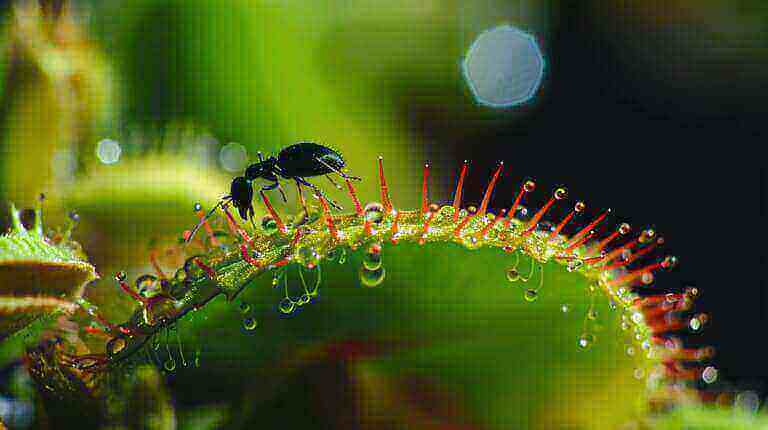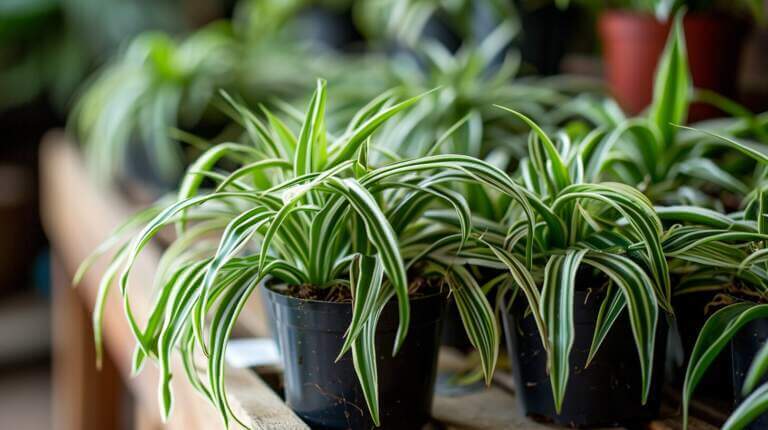What To Do If Your Cat Eats a Peace Lily: Important Safety Tips
Are you a cat owner concerned about the safety and well-being of your feline companion? If so, it’s vital to be prepared for any potential dangers that may arise.
One such danger is the ingestion of a peace lily, a popular household plant that can be toxic to cats.
In this article, we will provide you with important safety tips on what to do if your cat eats a peace lily.
Stay informed and protect your beloved pet with our expert advice.
Key Takeaways
- Familiarize yourself with symptoms of peace lily poisoning in cats
- Seek emergency veterinary care immediately if ingestion is suspected
- Do not induce vomiting at home, instead contact a veterinarian for guidance
- Take steps to prevent future incidents by securing windows, keeping toxic substances out of reach, and choosing cat-safe indoor plants
Identifying the Symptoms of Peace Lily Poisoning in Cats
In order to ensure the well-being of feline companions, it is crucial for pet owners to familiarize themselves with the symptoms of peace lily poisoning in cats. Recognizing signs of peace lily poisoning is imperative as it allows for swift action and ensures that emergency treatment can be provided promptly.
The symptoms of peace lily poisoning in cats can vary depending on the amount ingested and the individual cat’s sensitivity. Common symptoms include drooling, vomiting, diarrhea, and difficulty breathing. Cats may also exhibit signs of oral irritation, such as pawing at the mouth or excessive licking of the lips. In severe cases, tremors, seizures, and even coma can occur.
If you suspect that your cat has ingested a peace lily, it is essential to seek emergency veterinary care immediately. Time is of the essence when it comes to peace lily poisoning, as the toxins can quickly affect the cat’s vital organs. The veterinarian will assess the cat’s condition and administer appropriate treatment, which may include inducing vomiting, administering activated charcoal to absorb the toxins, and providing supportive care such as intravenous fluids.
Immediate Actions to Take if Your Cat Eats a Peace Lily
To ensure the safety of your beloved feline companion, promptly seeking emergency veterinary care is imperative if your cat ingests a peace lily. Peace lilies, while beautiful and popular houseplants, can be toxic to cats if ingested. The ingestion of peace lilies can lead to symptoms such as vomiting, drooling, difficulty swallowing, and even kidney failure in severe cases.
If you suspect that your cat has ingested a peace lily, it is important to seek professional help immediately. Inducing vomiting at home is not recommended unless specifically instructed to do so by a veterinarian. This is because inducing vomiting without proper knowledge can potentially cause further harm to your cat.
Instead, contact a veterinarian as soon as possible. Provide them with all the necessary information, including the fact that your cat has ingested a peace lily. The veterinarian will guide you on the next steps to take, which may include bringing your cat in for examination and potential treatment.
In the event of peace lily ingestion, time is of the essence. Contacting a veterinarian promptly will ensure that your cat receives the appropriate care and treatment necessary to minimize any potential harm caused by the ingestion of this toxic plant.
Contacting a Veterinarian: What You Need to Know
Seeking immediate veterinary assistance is crucial when contacting a veterinarian, as it ensures timely care for your pet’s health and well-being. When you find yourself in need of a veterinarian consultation or emergency response, it is important to be prepared and knowledgeable about the process.
Here are some important points to keep in mind:
- Gather all relevant information about your pet’s symptoms or condition before contacting the veterinarian. This will help them assess the situation more accurately.
- Call the veterinarian’s office to explain the situation and inquire about their availability. Some clinics may have specific protocols for emergencies.
- Follow any instructions provided by the veterinarian over the phone, such as administering first aid or preparing your pet for transport.
- If necessary, bring your pet to the veterinarian as soon as possible. Be prepared for a wait and bring any necessary documents or records.
- During the consultation, provide the veterinarian with detailed information about your pet’s symptoms, medical history, and any recent changes in behavior or diet.
Home Remedies and First Aid for Peace Lily Poisoning
Administering the appropriate first aid measures and utilizing effective home remedies, such as washing the affected area and inducing vomiting, can help mitigate the effects of peace lily poisoning in a timely manner. Peace lilies are popular houseplants known for their attractive foliage and beautiful flowers. However, it is important to be aware that they can be toxic to cats if ingested. If your cat has eaten a peace lily, it is essential to act quickly and provide the necessary care.
The first step is to remove any remaining plant material from your cat’s mouth and gently wash the affected area with mild soap and water. This will help minimize further absorption of toxins. Next, it may be necessary to induce vomiting to eliminate any remaining plant material from the stomach. This can be done by administering hydrogen peroxide under the guidance of a veterinarian.
While home remedies can be helpful in the early stages of peace lily poisoning, it is crucial to seek emergency veterinary care as soon as possible. A veterinarian will be able to assess the severity of the situation and provide appropriate treatment, such as activated charcoal to absorb any toxins that may have been absorbed into the bloodstream.
Preventing Future Incidents: Cat-Proofing Your Home and Garden
One effective way to ensure the safety of your feline friend is by cat-proofing both your home and garden. Cats are curious creatures and can easily get into trouble if their environment is not properly secured. Here are some cat-proofing tips to help keep your cat safe and happy:
- Secure all windows and balconies with sturdy screens or barriers to prevent falls.
- Keep toxic substances, such as cleaning products and medications, out of your cat’s reach by storing them in locked cabinets or high shelves.
- Cover electrical cords with cord protectors or hide them behind furniture to prevent your cat from chewing on them and getting electrocuted.
- Secure all loose wires and cables to prevent your cat from getting tangled or injured.
- Create a safe outdoor space for your cat by installing a cat enclosure or using cat-proof fencing to keep them from wandering off or encountering dangerous wildlife.
When it comes to indoor plants, it’s important to choose ones that are safe for cats. Some popular cat-safe plants include spider plants, Boston ferns, and African violets. Avoid plants like lilies, which are toxic to cats if ingested.
Frequently Asked Questions
Are Peace Lilies Toxic to Cats as Well as Dogs?
As a responsible pet owner, it’s crucial to be aware of plants that can harm our furry companions. When it comes to keeping dogs safe from peace lilies, it’s important to note that these plants are toxic to both cats and dogs. Peace lilies contain calcium oxalate crystals that can lead to various symptoms such as oral irritation, vomiting, difficulty swallowing, and even respiratory issues. It’s best to avoid having peace lilies in your home if you have pets, or ensure they are placed in areas where pets cannot access them.
Can Peace Lilies Be Toxic to Other Pets Besides Cats?
Peace lilies can indeed be toxic to other pets besides cats. Dogs, for example, can experience symptoms of peace lily poisoning if they ingest this plant. Common symptoms include drooling, vomiting, diarrhea, and difficulty swallowing.
It’s important for pet owners to be aware of the potential risks and to keep peace lilies out of reach from all pets. If you suspect your pet has ingested a peace lily, it’s best to contact your veterinarian immediately for guidance and treatment.
Are All Parts of the Peace Lily Plant Toxic to Cats?
All parts of the peace lily plant are toxic to cats. Ingesting any part of the plant can lead to various symptoms of poisoning, such as drooling, vomiting, difficulty swallowing, and even kidney failure.
It is essential for cat owners to be aware of the potential dangers and take preventive measures to ensure their feline companions are not exposed to peace lily plants. This includes keeping the plants out of reach and considering alternative non-toxic houseplants for a safe environment.
Are peace lilies poisonous to cats?
Yes, peace lilies are poisonous to cats. They contain calcium oxalate crystals which can cause harm if ingested.
What are the signs of lily toxicity in cats?
Signs of lily toxicity in cats can include vomiting, drooling, loss of appetite, and increased urination. In severe cases, it can cause kidney failure in cats.
How can I keep my cat away from peace lilies?
To keep your cat away from peace lilies, consider placing the plant in a location that your cat cannot access. You can also use pet deterrent sprays or provide alternative plants for your cat to chew on.
Are all types of lilies dangerous for cats?
Yes, all types of true lilies, including Easter lilies and Asiatic lilies, are dangerous for cats. They can cause kidney failure in cats if ingested.
What should I do if my cat has eaten a peace lily?
If you suspect your cat has eaten a peace lily, contact your vet immediately or call the pet poison helpline. Prompt treatment is essential to prevent serious health issues.
How can I prevent my cat from eating peace lilies?
To prevent your cat from eating peace lilies, consider using cat-friendly plants in your home instead. Providing plenty of toys and engaging activities can also help keep your cat distracted from the plants.
Is It Dangerous for Cats to Eat Drooping Peace Lily Leaves?
Drooping peace lily leaves can pose a danger to cats if ingested. These plants contain calcium oxalate crystals, which can cause oral irritation, drooling, and difficulty swallowing. In severe cases, it may lead to vomiting, diarrhea, and even respiratory distress. It’s important to keep drooping peace lily plants out of reach from curious cats to ensure their safety.
Are peace lilies safe for dogs?
No, peace lilies are not safe for dogs either. They contain the same toxic compounds that are harmful to cats.
Can outdoor cats be at risk from peace lilies?
Yes, outdoor cats can also be at risk if they come into contact with peace lilies in gardens or other outdoor areas.






